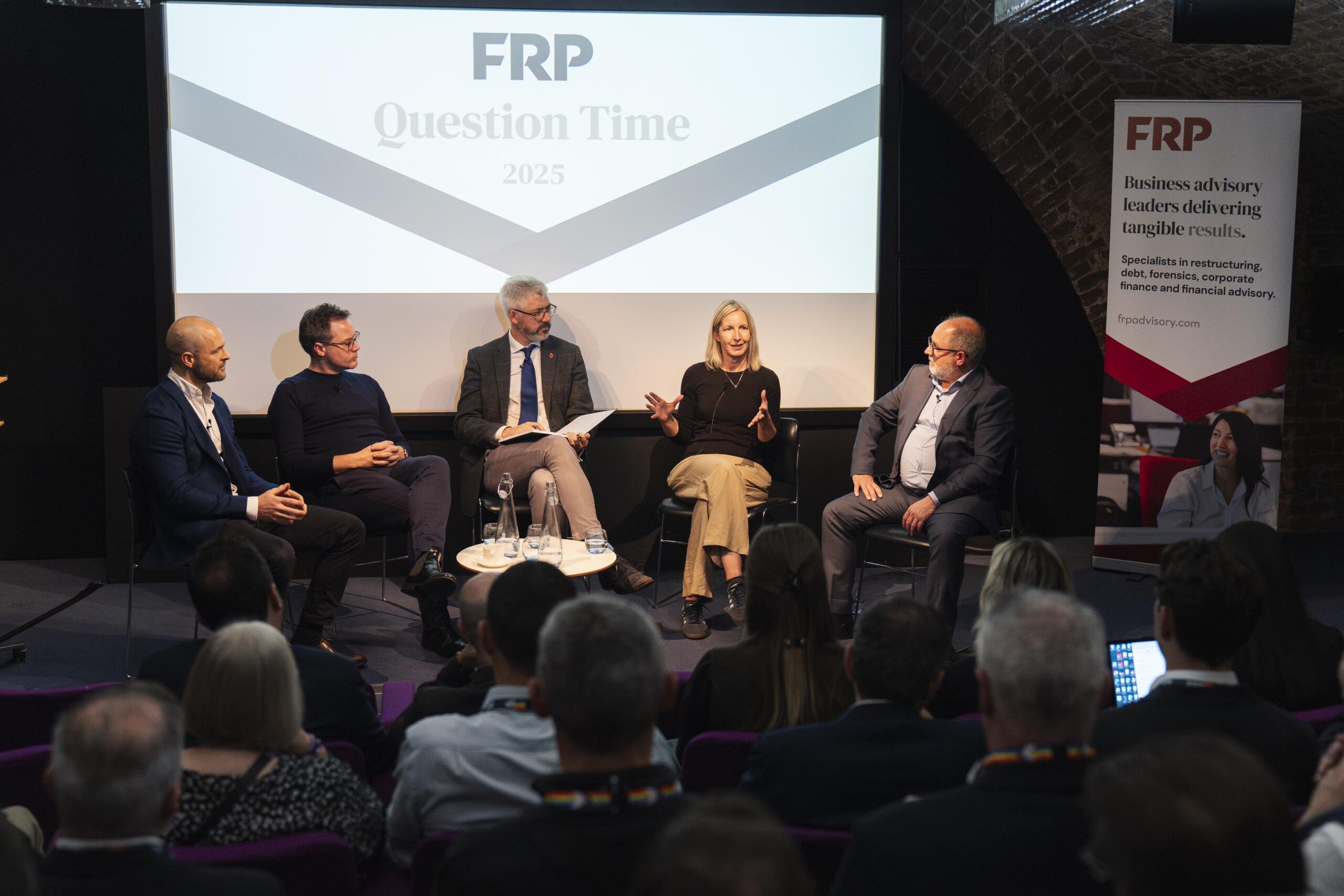Insights on tax reform, investment, and growth from industry leaders
FRP Question Time 2025: Navigating Uncertainty in a Stagnant Economy
Insights on tax reform, investment, and growth from industry leaders

At this year’s FRP Question Time event, a panel of senior industry figures came together to once again explore the UK’s economic trajectory, fiscal policy challenges, and sector-specific pressures. Hosted by Christian May of City AM, the panel included Trevor Cosgrove, Partner at Simmons & Simmons, Marita Cavalcanti Chief Financial Officer at Bound, Allen Simpson, Chief Executive Officer at UK Hospitality, and Jim Davies, Financial Advisory Partner and Valuations Specialist at FRP, offering a pragmatic assessment of the current landscape.
Economic outlook
The panel painted a picture of an economy stuck in neutral, with particular concern for the construction sector, which was described as already in recession. Trevor reflected on the past year as one of the most uncertain periods for the industry, citing high material costs, labour shortages, and the impact of regulatory changes such as the Building Safety Act. The recent speech by the Chancellor was also seen to have exacerbated uncertainty, hinting at tax increases without providing clarity.
More broadly, the UK’s fiscal position was described as unstable, with a growing “black hole” in public finances, estimated anywhere between £20bn and £100bn. While volatility may offer opportunities for financial services, the panel noted a lack of meaningful measures to stimulate wider economic growth.
Tax policy: Strategy over short-termism
Taxation was a central theme, with the panel urging a move away from short-term tinkering toward a more strategic approach. There was consensus that raising smaller taxes would create noise and unease without delivering the revenue needed. Instead, the government was encouraged to consider more significant levers, though this would require political courage. Jim identified opportunities to unlock economic activity, particularly by offering incentives in areas such as housing.
The role of the Office for Budget Responsibility (OBR) was also scrutinised, with some panellists suggesting that its influence may have constrained more dynamic policymaking.

Labour market and regulation
Labour market challenges were another key concern, with focus on the UK’s talent pipeline and regulatory clarity. Marita commented on the UK’s struggle to attract and retain talent, especially in London, whilst Trevor called for more investment in vocational training and apprenticeships, highlighting a need to encourage young people into areas such as plumbing and electrical work to better support sectors such as construction, where skilled trades are in short supply.
On regulation, the message was clear: businesses don’t necessarily need lighter regulation, but they do need clearer, more consistent rules. Ambiguity and complexity were seen as major barriers to growth and confidence.
The road ahead
Looking ahead, the panel agreed that the government would face a tough road, with limited scope to effect rapid change. Whilst a broader downturn is anticipated within the next year, stronger bank balance sheets and a more resilient financial system should help avoid a repeat of the 2008 crisis.
Jim noted that while meaningful growth may take time, steady policy delivery could help close the fiscal gap over time. In closing, Trevor captured the prevailing sentiment: “There’s no easy way out, just a series of uncomfortable decisions. What we need is clarity, simplicity, and a strategy that shows how today’s actions lead to tomorrow’s growth.”








